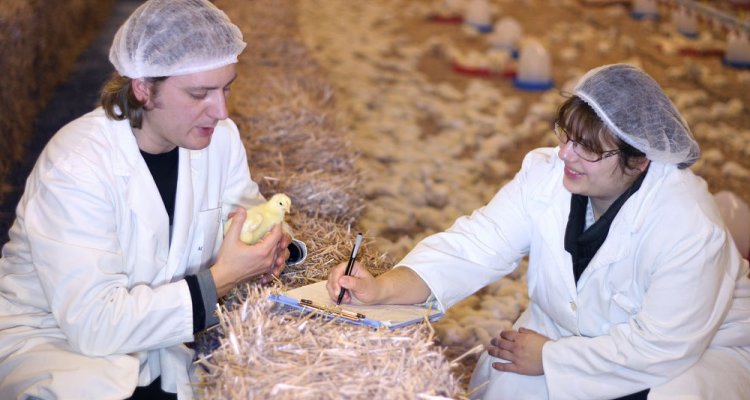
News
Not all genotypes are needed in final evaluations of preselected animals
In animal breeding, preselection is often performed early in lives of the animals. To further evaluate preselected animals, genetic evaluation models that simultaneously utilize pedigree, genotypes and phenotypes only require genotypes of the animals removed early in the selection process if their parents are not genotyped. This is the main conclusion from an investigation by researchers in the Animal Breeding and Genomics Group of Wageningen University & Research.
Selection of parents of the next generation is a multi-stage process
The ideal moment to select animals to become parents of the next generation is when all traits of interest have been recorded on all animals. Raising all animals to this point in time, and recording their performance, is costly. Therefore, an initial selection stage is often made early in lives of the animals. This is called preselection, and nowadays it is often made using genomic information, hence called genomic preselection. Those animals that survive this selection stage are called genomically preselected animals, and those that are removed at this stage are called genomically preculled animals. It is known in the literature that if the final evaluations of the genomically preselected animals are done using the models that utilize only pedigree and phenotypes, information on the genomically preculled animals is needed to ensure proper evaluation of the genomically preselected animals.

Genotypes of preculled animals are not always needed in the final evaluations of their preselected relatives
To finally select the parents of the next generation, genomically preselected animals are further evaluated when they have more phenotypic information. These evaluations are now commonly done using so called ‘single-step genomic evaluation models’, which combine all available pedigree, phenotypes and genotypes. Until now, genotypes of preculled animals were used in the final evaluations of their retained relatives. As a consequence, the final evaluations were rather slow. The researchers have now shown that if the final evaluations are done using single-step genomic evaluation models, genotypes of preculled animals are only required if their parents are not genotyped. This finding will enable animal breeders to only use those genotypes that are required in subsequent evaluations of preselected animals, which will in turn speed-up the genetic evaluations. Getting the results of genetic evaluations in time is crucial to ensure that appropriate animals are kept and the rest are removed as quickly as possible, to prevent additional cost of keeping them longer than necessary.
The research was financially supported by the Dutch Ministry of Economic Affairs (TKI Agri & Food project 16022) and the Breed4Food partners Cobb Europe, CRV, Hendrix Genetics and Topigs Norsvin.